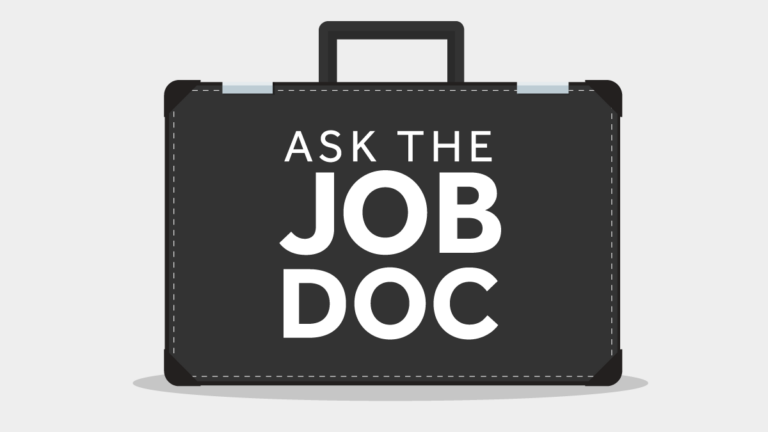Job Doc
How to explain why you walked out
Q: I just left my job. I had a significant argument with one of my co-workers. No one really gets along with him. We all just tolerated him. I had reached a point where I could not take it anymore. I walked out. I grabbed all of my personal belongings and walked out. I know I should have given notice but this person is toxic, and others have left the company because of him too. I know I made a mistake. I should have given notice and resigned and left without a lot of anger. Now, I am unemployed and job hunting. I never thought I would be in this position. Now that I am less emotional (less angry and irritated), I acknowledge that I make an enormous mistake. A huge error in judgement. I have to find a new job. I am not sure what I should say to people now. I think my job hunt will be hard, maybe even impossible. What do I say when I am asked by a recruiter or an interviewer? I was at this company for five years. Am I in an impossible position?
A: From what you have shared, it sounds like you were angry and had reached your boiling point. One toxic person can negatively impact an entire department or sometimes an entire company.
Conflicts in the workplace are fairly common. However, they range from small verbal disagreements about a noisy cell phone to major conflicts with one person publicly berating another person. I don’t know the nature of your dispute with your co-worker but it sounds like that person was not well-liked by a number of others. I know there are people in our workplaces who are disagreeable, untruthful, ornery or unethical.
It is an expectation, that employees will provide a reasonable notice period before they leave an organization. Two weeks’ notice is what most employers expect before an employee’s last day. Sometimes sales representatives are asked to leave immediately, after their notice is given. The reason is often that the company fears that the sales representative will continue to have access to client information. Many senior-level employees are often expected to give four weeks of notice, or more. This period of time helps the organization successfully transition this person’s responsibilities to another person. Some employers request a transition plan from an exiting employee. A transition plan outlines the role’s responsibilities, any follow-up required, as well as the employee’s contacts, both inside and outside of the organization.
I think you need to give your former employer as a reference. I would call and ask them what they would say. Hopefully they stick to the guidelines of “name, rank and serial number.” By that, I mean that maybe they will confirm your name, title and dates of employment. Most employers don’t give the reason why that person has left.
You should think about how you are going to explain your current status and your resignation from your last company. You can certainly focus on your contributions over the five years with the company, but you will likely get the question: “After five years of employment with ABC Company, why did you leave?” You may even be asked an additional follow-up question like “Why did you leave without having a new job?” It is best not to provide too much detail on the conflict, but address it and move on. As an example, if the conflict was about a technical feature of a new software being launched, you could say “One of my colleagues and I had different views about a technical feature of our new software. But I feel like I learned a lot in my five years with ABC. I decided there may be other opportunities that might further my career and expose me to new challenges.” Always, always, always be honest. Being honest though is different than dwelling on the conflict. Most interviewers bristle when they hear the word “conflict,” as that may mean you are a person that doesn’t get along with others. If pressed by an interviewer if you gave proper notice, you should disclose the truth. I wouldn’t offer that you “packed up your desk and left,” unless I was forced to share that detail. It conveys a message of professional immaturity.
Finally, realize that conflict occurs every day in workplaces. They happen in your workplace, my workplace and the workplaces of others. They will happen in your next workplace. It is inevitable. However, think about better ways to resolve a conflict, rather than just leaving your workplace without giving proper notice. You could have communicated to your manager that you are exasperated, angry and are unable to continue in your role. You could have offered your two-week notice then. We can’t undo the past though. However, we can learn from the past so our future behavior is modified.
Newsletter Signup
Stay up to date on all the latest news from Boston.com
